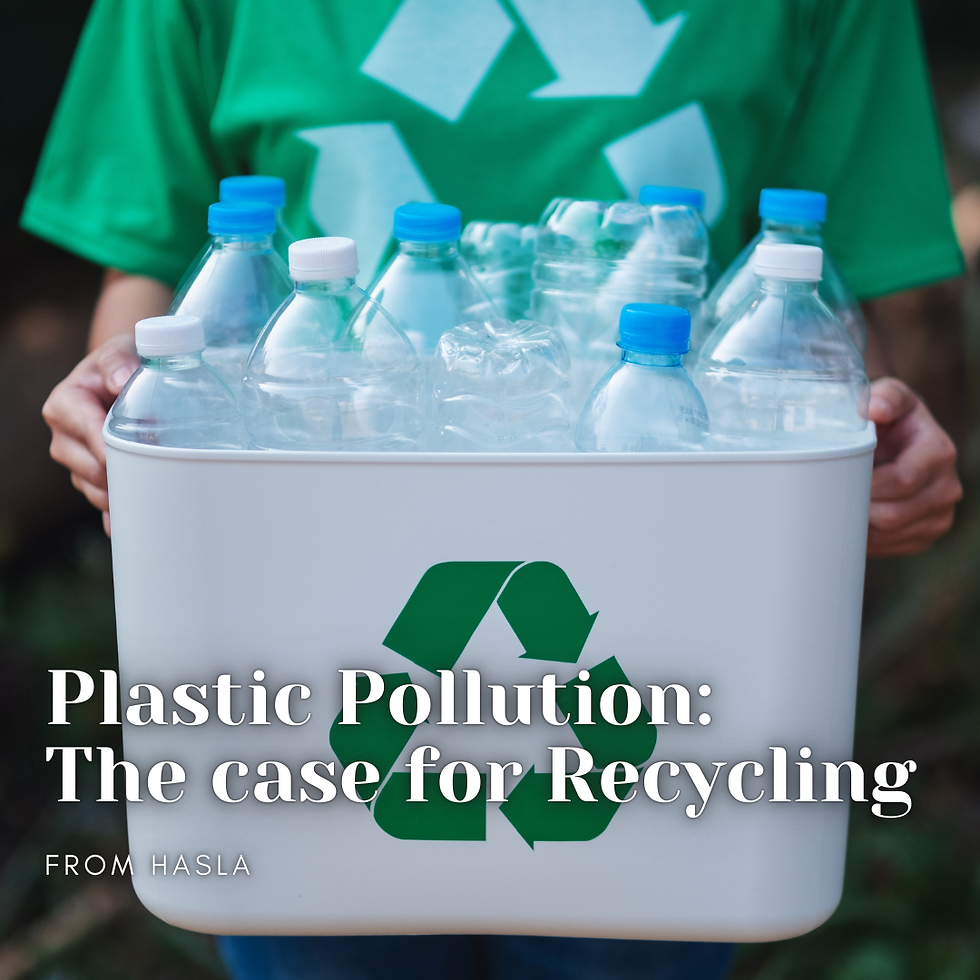Plastic Pollution: The case for Recycling
- Yoongu Kwon
- Dec 4, 2024
- 2 min read





In our modern world, convenience often comes at a cost—and nowhere is this more evident than in our use of plastic. With over 500 billion plastic bottles used globally each year, the question isn’t just about how we’re using them, but what happens next. Unfortunately, most of these bottles—a staggering 91% according to studies—are never recycled, ending up in landfills, oceans, or other natural environments. Here, they can take up to 450 years to decompose, leaving an indelible mark on our planet.
The Scale of the Problem
The sheer amount of plastic waste is overwhelming. According to Jersey Island Holidays, billions of plastic bottles are discarded every year, contributing to a growing environmental crisis. While many of us dutifully toss bottles into recycling bins, the unfortunate truth is that only a fraction of this waste gets recycled.
Meanwhile, GreenMatch highlights the inefficiency of current recycling systems, which struggle to keep up with the volume of plastic waste generated. Without significant changes, this plastic waste continues to harm wildlife, pollute ecosystems, and contribute to climate change.
A Path Forward: Small Actions, Big Impact
While the statistics are sobering, they also present an opportunity for change. Recycling is one of the simplest yet most effective ways to mitigate the impact of plastic waste. By rethinking how we consume and dispose of plastic, we can reduce waste and help build a sustainable future.
At Hasla, we are committed to being part of the solution. Our recycled polyester T-shirts are crafted with care, transforming used materials into high-quality, everyday essentials. By choosing products made from recycled materials, you’re not just making a fashion statement—you’re taking a stand for our planet.
Why Recycling Matters
Recycling plastic bottles is about more than reducing waste; it’s about creating a circular economy where materials are reused and repurposed. Every bottle recycled means less pollution, fewer resources used to produce virgin plastic, and a cleaner planet for future generations.
How You Can Help
Choose sustainable products: Support brands that prioritize recycled and eco-friendly materials.
Recycle correctly: Ensure bottles are clean and placed in appropriate recycling bins.
Reduce single-use plastics: Opt for reusable bottles and containers whenever possible.
Spread awareness: Share the importance of recycling and sustainability with your community.
Together, We Can Make a Difference
Change doesn’t happen overnight, but every small step counts. By rethinking our habits and supporting sustainable solutions, we can tackle the plastic pollution crisis head-on. Join Hasla in making a difference, one recycled T-shirt—and one plastic bottle—at a time.




댓글